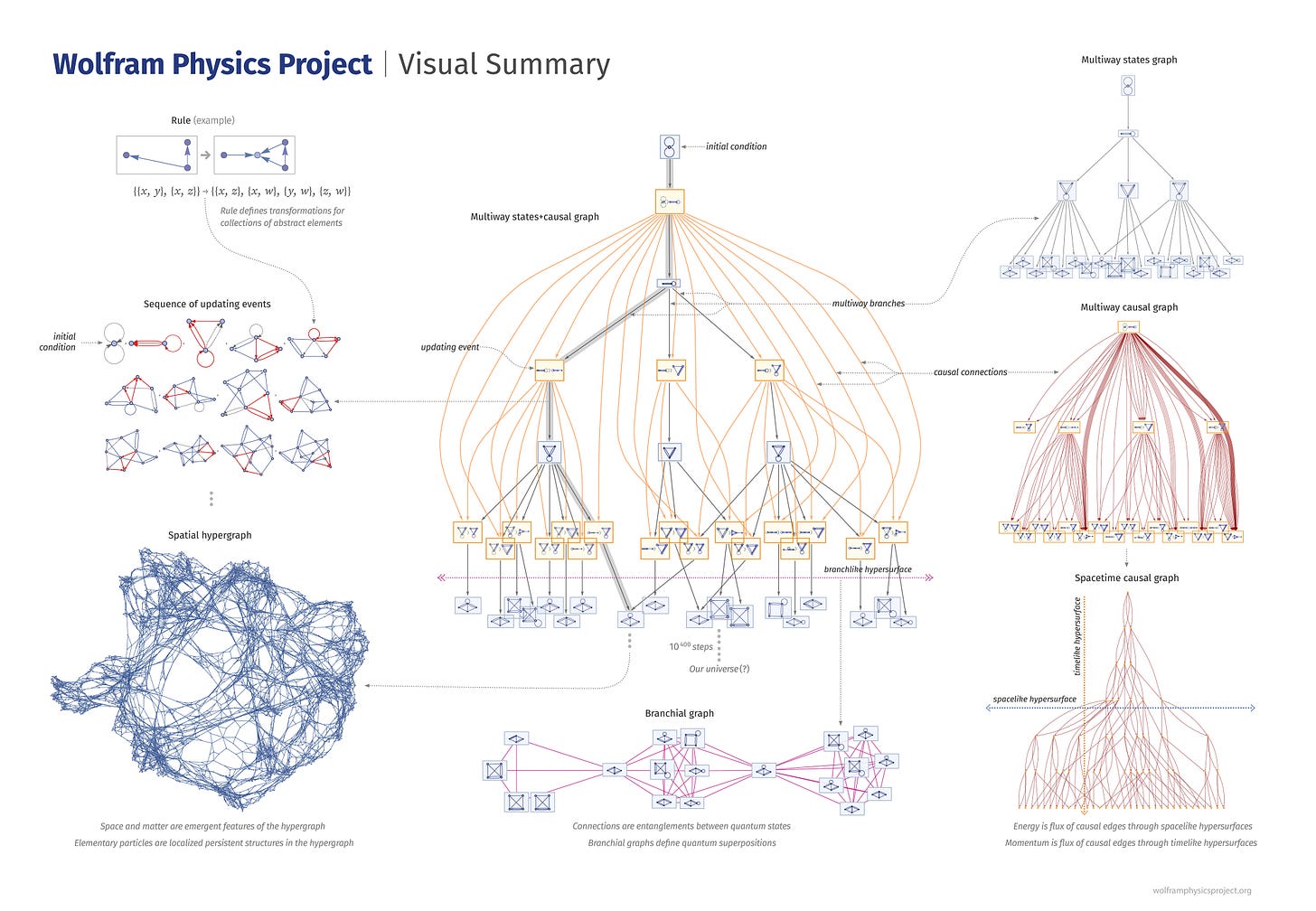🧠Mind Expanding 28 Jan 2024: theories of everything🌌thinking wider around AI🤖💭 toddler LLMs👶 the value of understanding values🧭 data dam🌊
Place yourself in the mind of a non-human, all-powerful superintelligence
So, back into it for 2024…
Mind Expanding Links is my regular curation for Memia subscribers of deeper dives, bigger thinks and other eclectica that I’ve come across while compiling the weekly newsletter. Thanks for reading!
Lots to tickle your neurons In this issue:
🌌Theories of everything a survey across the current conventional and challenger theories of the physics of our base reality: is the Universe fundamentally quantum mechanical, computational, a collection of evolving assemblies, postquantum… or a combination of all of these? Can we hack physics with a quantum buffer overflow? Also a roundup of the latest findings from the decade-long 🔭 Dark Energy Survey of the cosmos…
🤖💭Thinking wider around AI some diverse perspectives outside the usual narratives on AI: AI’s “North Star”, LLMs still have a toddler's intelligence, how AI will exploit the human brain’s reward function… and four rights-based pillars upon which to build AI regulation.
💯The Great Simplification x100 ecological economist Nate Hagens for 100 episodes of his thoughtful, constructive podcast series on big picture issues facing human society.
🧭The value of understanding values an exercise to identify the moral values underpinning the current “hyperobject” metacrisis …and then intuit values for future AGI to prioritise sustainability and human well-being?
🎲Miscellany the usual roundup of mind expanding links defying categorisation, including: the role of devices as new gatekeepers in journalism, South Korea's Data Dam project to capture value from national data of significance, and the latest from the EFF on privacy-focused legislation.
🎥🎧Watching and Listening recommendations for your weekend entertainment: a podcast about the last Soviet cosmonaut, the provocative apocalypse movie Leave The World Behind featurig “kamikaze Teslas” and Space Engine, the universe on your desktop.
Enjoy!
🌌Theories of everything
The quest to explain all reality
Part of my southern hemisphere summer holiday was spent re-listening to Don Lincoln of the Fermi National Accelerator Laboratory (Fermilab) presenting the 24-lecture series The Theory of Everything - The Quest to Explain All Reality. The course takes the listener on a comprehensive journey through modern physics all the way from Newton, Maxwell (electromagnetism) through Einstein’s special and general relativity, quantum mechanics, the Higgs field, today’s consensus on the Standard Model of Particle Physics and then on to the most contemporary theories of what else the universe is made up of other than barionic matter (atoms like us): dark matter and dark energy (see Dark Energy Survey below).
This is my second time through the lecture series and I definitely understood a *bit* more this time around… it’s a challenging listen but a highly recommended entry point if you’re on a mission to skill up in the latest in fundamental physics…
(Recorded in 2017… due an update on all the new discoveries since then!)
🏗️Assembly theory of everything?
British computational chemist Lee Cronin published a radical new paper introducing Assembly Theory, a new approach to measure complexity of any object in the Universe based upon its “evolutionary” history. From the abstract:
“Scientists have grappled with reconciling biological evolution with the immutable laws of the Universe defined by physics. These laws underpin life’s origin, evolution and the development of human culture and technology, yet they do not predict the emergence of these phenomena. Evolutionary theory explains why some things exist and others do not through the lens of selection. To comprehend how diverse, open-ended forms can emerge from physics without an inherent design blueprint, a new approach to understanding and quantifying selection is necessary. We present assembly theory (AT) as a framework that does not alter the laws of physics, but redefines the concept of an ‘object’ on which these laws act. AT conceptualizes objects not as point particles, but as entities defined by their possible formation histories. This allows objects to show evidence of selection, within well-defined boundaries of individuals or selected units. We introduce a measure called assembly (A), capturing the degree of causation required to produce a given ensemble of objects.“
Andrew Cote explains it as introducing a new “measure” of how evolved any system is:
Cronin discusses at length with Lex Fridman - engaging and fascinating new approach:
🔣Computational theory of everything?
As previously covered many times, the Wolfram Physics Project proposes (controversially!) that the fundamental theory of physics is computational and can be modelled using complex hypergraphs that exhibit emerging properties like space and matter:
Keep reading with a 7-day free trial
Subscribe to Memia to keep reading this post and get 7 days of free access to the full post archives.







